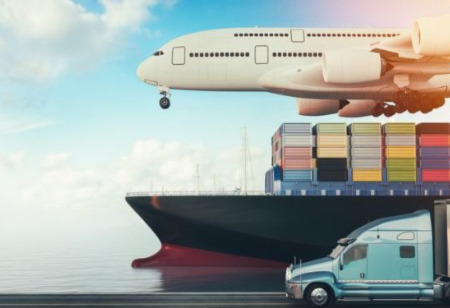
EU's New Safety and Security System to Replace Current Procedure of Product Entry by Road, Rail and Sea

 Import Control System 2 (ICS2), the new customs pre-arrival safety and security system of the European Union, will replace the current procedure for products entering the EU by road, rail, and sea and inland waterways on June 3, 2024.
Import Control System 2 (ICS2), the new customs pre-arrival safety and security system of the European Union, will replace the current procedure for products entering the EU by road, rail, and sea and inland waterways on June 3, 2024.
This is the third iteration of the new system's installation, which will compel all means of transportation to report safety and security data. Similar regulations are already in place for commodities transported by air.
With this third release, carriers using road, rail, and sea and inland waters will also be required to submit information on products sent to or through the EU before they arrive, using a comprehensive Entry Summary Declaration (ENS).
In addition to other parties like logistics providers, this requirement also applies to postal and express carriers that use these means of transportation to convey products. Final consignees based in the EU may also be required under certain conditions to provide ENS data to ICS2.
To reduce the possibility of delays and noncompliance, traders are strongly encouraged to get ready in advance for Release 3. Businesses who are impacted will have to make sure that they update their IT systems and operational procedures, gather complete and accurate data from their clients, and give their employees the necessary training.
Before connecting to ICS2 on December 11, 2023, traders will also need to pass a self-conformance exam to confirm that they can access and communicate with customs authorities.
Within a time-limited deployment window, EU Member States will authorize impacted traders to progressively connect to ICS2 upon request. Member States can grant the deployment window anytime within the following timeframes: from 3 June 2024 to 4 December 2024 (maritime and inland waterway carriers); from 4 December 2024 to 1 April 2025 (maritime and inland waterway house level filers); and from 1 April 2025 to 1 September 2025 (road and rail carriers). Goods will be halted at EU crossings and not cleared by customs officials if traders are not prepared in advance and do not submit the data required under ICS2.
ICS2 will facilitate the transit of goods between customs offices at the original point of entry and final destination in the EU. Instead of using 27 national interfaces, ICS2 will offer a single point of contact for all EU operations with the customs authorities of EU Member States. Customs authorities' demands for further information and pre-departure risk screening will be streamlined for traders via ICS2, which will lessen the administrative load on companies.